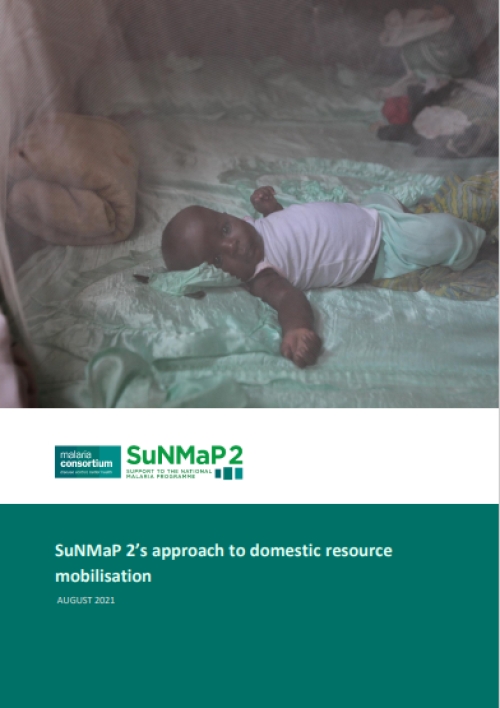Publications

Publication Date:
31/08/2021
Type:
Project report

SuNMaP 2’s approach to domestic resource mobilisation
Publication Date:
31/08/2021
Type:
Project report

Publication Date:
31/08/2021
Type:
Project report
Publication

SuNMaP 2’s approach to domestic resource mobilisation
Publication Date:31/08/2021
Type:
Project report
The SuNMaP 2 programme strengthened efforts to mobilise sustainable domestic resources for malaria interventions in Nigeria.
In 2020, Nigeria still accounted for 27 percent of global malaria cases and 23 percent of global malaria deaths. While several factors have contributed to this situation, two are of particular concern: inadequate domestic financing of malaria interventions in the country, and insufficient health budgets to date. To improve domestic financing in the country, Malaria consortium’s Support to the National Malaria Programme in Nigeria 2 (SuNMaP 2) developed a domestic resource mobilisation approach.
Country: Nigeria
Keywords: Capacity development | Community delivery | Malaria | Case management | Quality improvement | SDGs
« Back to Publications